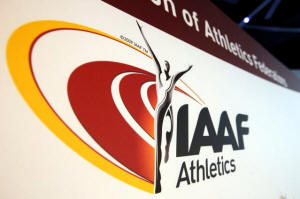|
Athletics: Integrity unit backs new IAAF anti-doping rules
 Send a link to a friend
Send a link to a friend
 [July 28, 2018]
(Reuters) - The Athletics
Integrity Unit (AIU) has welcomed new anti-doping regulations in the
sport that put greater responsibility on national federations. [July 28, 2018]
(Reuters) - The Athletics
Integrity Unit (AIU) has welcomed new anti-doping regulations in the
sport that put greater responsibility on national federations.
Following an International Association of Athletics Federations
(IAAF) council meeting, national federations will be divided into
three categories with differing obligations based on their level of
success and the perceived risk of doping.
"For too long the strict requirements of the anti-doping rules have
fallen largely onto athletes," AIU chairman David Howman said in a
statement.
"The IAAF Council should be congratulated for adopting innovative
new rules that also make all of its member federations accountable
on anti-doping matters. This will help ensure lasting and meaningful
change in athletics."

The doping scandal involving Russian athletes, which saw the
country's track and field team banned from the 2016 Rio Olympics,
has cast a long and enduring shadow over athletics.
The AIU was set up a year ago as part of the IAAF's effort to
separate itself from anti-doping and corruption and rebuild athlete
and fan confidence in the sport.
The AIU first raised the idea of the new rules with the IAAF council
in November and after discussions with all stakeholders recommended
the amendments at this week's meeting in Buenos Aires.
[to top of second column] |

The logo of the International Association of Athletics Federations
(IAAF) is seen in Monaco, March 11, 2016. REUTERS/Eric Gaillard
Picture Supplied by Action ImageS/File Photo

The IAAF said four member federations - Kenya, Ethiopia, Belarus,
Ukraine - would constitute the current watchlist of Category A,
which includes the members most at risk of doping.
Athletes from those countries will have to undergo at least three
out-of-competition doping tests in the 10 months prior to a world
championships or Olympics.
The power to categorize members into one of three groups will rest
with the AIU board and the new rules will come into effect from
2019, a year before the Tokyo Olympics.
(Reporting by Sudipto Ganguly in Mumbai; editing by Nick Mulvenney)
[© 2018 Thomson Reuters. All rights
reserved.] Copyright 2018 Reuters. All rights reserved. This material may not be published,
broadcast, rewritten or redistributed.
Thompson Reuters is solely responsible for this content.
 |